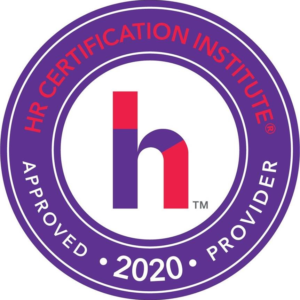Fact-Based/Evidence-Based Decision-Making
Hormoz Mogarei has been in management since 1990, with 20 years of those, directly in the “Lean” environment with Toyota and Toyota subsidiaries. In addition to many Lean Manufacturing courses, Hormoz has also authored and presented quite a few Management workshops such as: “Project Management, Effective Communication skills, Time Management, Strategic Planning, (Hoshin Kanri), Quality Improvement initiatives, Scientific Problem-solving, Standardization, Effective Leadership / Followership, and Team Building”.
Mr. Mogarei was first trained on Lean Manufacturing Techniques by Toyota Supplier Support Center (TSSC) in Kentucky as well as in Nagoya & in Toyota-City, in Japan. He was able to initiate, implement and lead various Kaizen projects in the areas of improving Quality, Cost, Lead-time, Team Member Development, Customer-Satisfaction, and Space utilization at a Toyota supplier and subsidiary. His claim to fame is to have achieved Zero-defects for 13-consecutive months, while at Toyota, producing a vehicle every 53-seconds with over 250,000 parts per day. Hormoz taught Quality Management courses at Silicon Valley Technical Institute (SVTI), in San Jose, CA, as well.
Many companies and major universities have hosted him as their trusted consultant in Lean Training and Implementation. His clients' list includes Boeing in Oregon, Applied Materials in Texas, Union Bank of California, Powis, Manex, Intel, Apple, HM Clause, Vilmorin, Spectrum Lithograph, SiTune, Stanford Hospitals & Clinics, Zazzle, UCSF, PlasmaTreat, Ascenx, Altera and the United Nation. He has lectured at Stanford U. and Cal-Poly University in San Luis Obispo. He is an international lecturer in countries such as Armenia, Brazil, China, Canada, Germany, and Japan, to name a few.
Mr. Mogarei is a Visiting Professor at UC Berkeley, DeVry & Keller universities, teaching Lean Management, Leadership & Lean Manufacturing/Production courses. His expertise is in designing, controlling and improving systems in a variety of organizations in the areas of:
Safety, Quality (TQM, QMS, etc.), Cost, Delivery, Customer-satisfaction, Team Member Development and Environment. He is currently the President & CEO of getting Kaizened, Inc., a Lean Training & Consulting firm in Northern California. Hormoz Mogarei holds a Mechanical Engineering degree and a master’s in business administration, (MBA). He is a Ph.D. candidate in Organization Leadership, as well.

This webinar has been approved for 1.50 HR (General) recertification credit hours toward aPHR™, aPHRi™, PHR®, PHRca®, SPHR®, GPHR®, PHRi™, and SPHRi™recertification through HR Certification Institute® (HRCI®). Please make note of the activity ID number on your recertification application form. For more information about certification or recertification, please visit the HR Certification Institute website at www.hrci.org.
For any further assistance please contact us at support@grceducators.com

The evidence-based decision-making process is a step-by-step (Systematic) process allowing professionals to solve problems by weighing evidence (facts), examining alternatives, and arrive at the correct (effective) decision. Fact-based decision-making Webinar will cover the basics of scientific problem-solving, knowing what decision(s) should be made. In anything we do, the main objective is “effectiveness” and in order to be effective at decision-making, we should rational, scientific, logical, and objective. Our decisions must be made based on the facts, not what one thinks are the facts and not the perceived facts. For our decisions to be defensible, they will have to be made, rationally, and systematically. The entire decision-making scenario must be viewed systemically and it was must then we executed systematically.
Systemic means holistic, considering each and every component within the system before we pass judgment, and everything must be substantiated before being considered in the decision. This means gut-feelings not backed by evidence is worthless. Systematic refers to the methods that facts are sorted, categorized, reviewed, considered, and evaluated. It means step-by-step in a logical and organized way. “A” before “B” and “C” after “B”. Having a hunch in decision-making and somehow allow that hunch to make the final decision, is not acceptable, nor is it fact-based decision-making!
There are 7-steps that we will explore together but it will all start with Clearly defining the problem and identifying the issue/obstacle or disagreement and state what the desirable decision(s) would be. This is by far the most important part of the evidence-based decision-making process. Technical or non-technical people, Engineers, and/or managers will be able to defend their decisions and be confident that their decision-making process is scientific and more logical than it is emotional!
Areas Covered
- Identify the problem & the desirable decision
- Collect information
- Identify potential solutions/decisions to be made
- Select the most effective/best solution(s)/decision(s)
- Rank solutions/decisions based on 5 criteria
- Implement solutions/decisions
- Evaluate the effectiveness of the implemented decision
Course Level - Basic & Intermediate
Who Should Attend
Any Engineer, Technical Person, Manager, Director
Why Should You Attend
The expectation that as an engineer or a manager you should regularly make decisions will not go away. Not only that, but you are also expected to make those decisions quickly and more importantly, but they had also better be effective and the right decisions!
Leaders, Managers, and engineers are making choices and decisions regularly. In fact, that’s the most important thing that they do all-day-long! The objective, however, is not making those decisions but making the correct choices that are effective and sustainable. Decision-making that is based on Scientific Problem-solving, is in fact the main reason why these positions are on the payroll. Managers and engineers should know how systematically sole problems, make decisions to simply survive and thrive. These two core competencies are as important as air, water, and food…
Topic Background
Decision-making is one of the many expectations that especially managers have to satisfy on a daily basis. The more logical, scientific and fact-based, the more sustainable the process and promotable that manager will be.
-
$200.00
-


